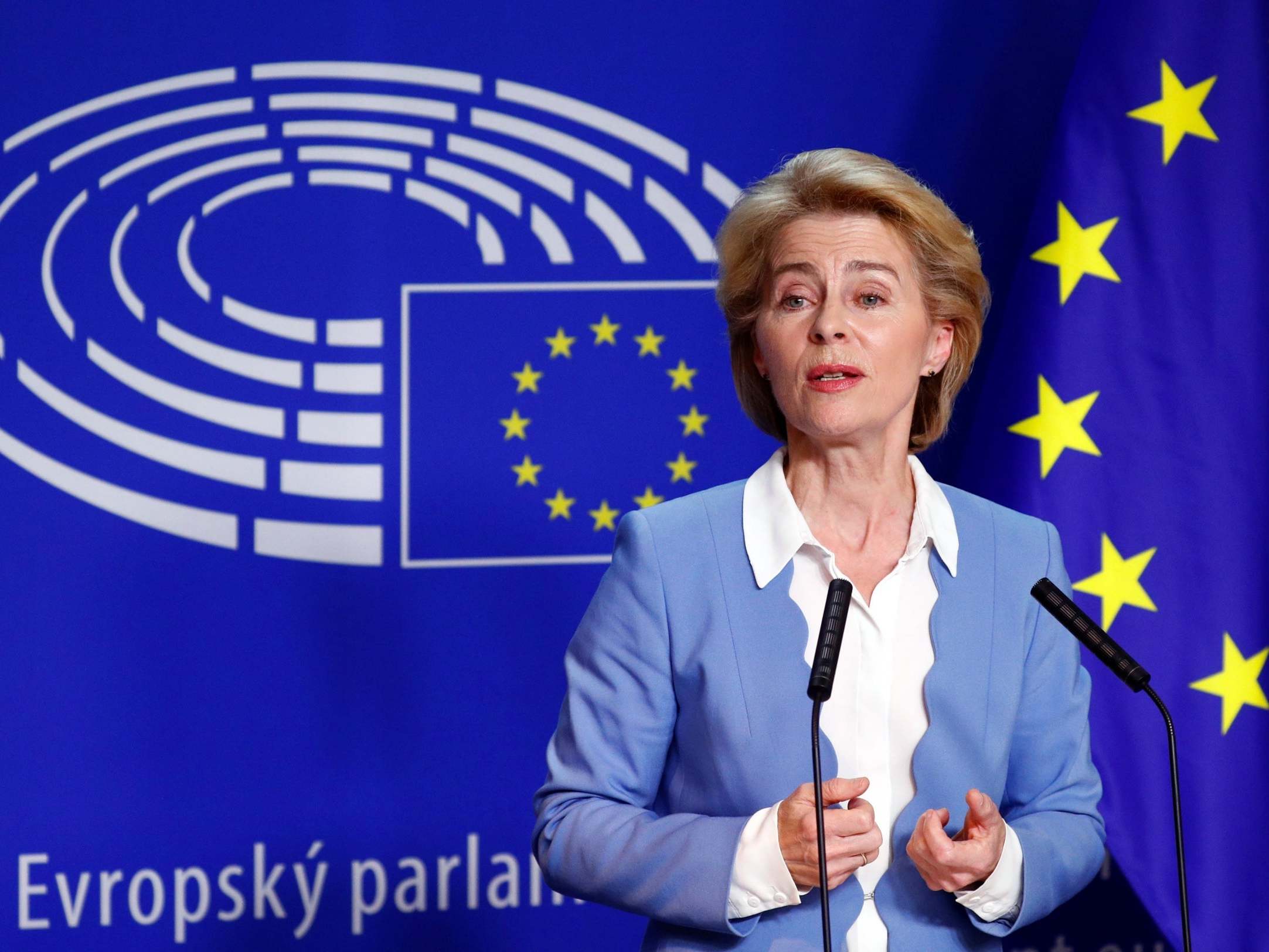Ursula von der Leyen, Strasbourg leaders’ next pick to be European Commission president, has said she would be open to a Brexit extension beyond 31 October, the current deadline.
What does this mean? For a start, it’s not up to her – the 27 remaining EU leaders get to decide at a summit earlier that month. Her view does count for something, though she won’t be in her post until 1 November. If she was against an extension, it would make life quite difficult were leaders to approve one.
Von der Leyen has also repeated the EU’s position on the withdrawal agreement: that it’s the only possible deal. This is more emphatic than what she said last week, which was merely that he backstop was important.
The main takeaway from all this is that there is full continuity between the old EU administration and the new one. Any hopes in Westminster that a handover would be used to adjust positions on the Brussels side look to be unfounded.
Von der Leyen also stood by the EU’s offer to make changes to the “future relationship political declaration”. This is a non-binding document that will spell out whether the UK will be in a customs union or single market. So a soft Brexit can still be negotiated – if the UK government wants one.
But the backstop, which is in the withdrawal agreement, is not going anywhere. It’s worth asking what the point of an extension would be (and many EU leaders will ask) if there are no talks. The Article 50 period is meant for negotiating the terms of withdrawal.
One clue to this is what Irish prime minister Leo Varadkar said at the last EU summit: he warned that leaders had run out of patience and wouldn’t grant an extension for anything other than to provide time for a second referendum or a general election. This would certainly make sense as a way of trying to unblock the logjam.
But then again, EU leaders have said this before – before they extended the deadline last time. In the end, they didn’t attach any conditions. Even the plea from Donald Tusk, president of the European Council, not to waste the time seems to have been roundly ignored.
Of course, back in the UK the implications of an extension could be significant. Boris Johnson has made very clear he is committed to leaving on 31 October, and not doing so would likely blow much of his credibility with Leavers. Whether he will go ahead with no deal or not is an open question.
Subscribe to Independent Premium to bookmark this article
Want to bookmark your favourite articles and stories to read or reference later? Start your Independent Premium subscription today.

Join our commenting forum
Join thought-provoking conversations, follow other Independent readers and see their replies
Comments